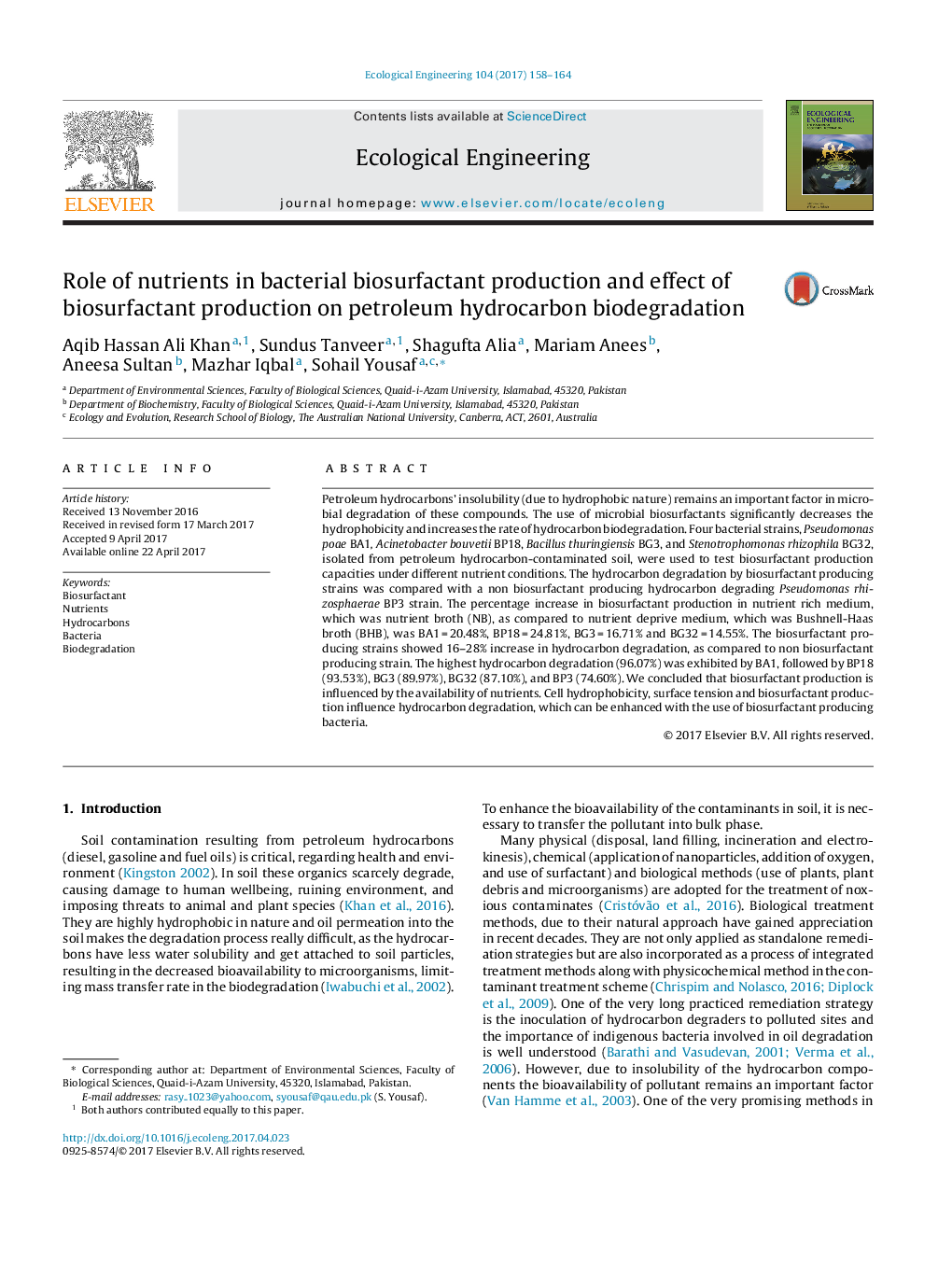| Article ID | Journal | Published Year | Pages | File Type |
|---|---|---|---|---|
| 5743954 | Ecological Engineering | 2017 | 7 Pages |
â¢Biosurfactant production increased hydrocarbon degradation 16-28%.â¢Nutrient availability increased biosurfactant production 15-25%.â¢Biodegradation is positivity related to cell hydrophobicity and biosurfactant.â¢Increase in surface tension of hydrocarbon, reduced hydrocarbon biodegradation.
Petroleum hydrocarbons' insolubility (due to hydrophobic nature) remains an important factor in microbial degradation of these compounds. The use of microbial biosurfactants significantly decreases the hydrophobicity and increases the rate of hydrocarbon biodegradation. Four bacterial strains, Pseudomonas poae BA1, Acinetobacter bouvetii BP18, Bacillus thuringiensis BG3, and Stenotrophomonas rhizophila BG32, isolated from petroleum hydrocarbon-contaminated soil, were used to test biosurfactant production capacities under different nutrient conditions. The hydrocarbon degradation by biosurfactant producing strains was compared with a non biosurfactant producing hydrocarbon degrading Pseudomonas rhizosphaerae BP3 strain. The percentage increase in biosurfactant production in nutrient rich medium, which was nutrient broth (NB), as compared to nutrient deprive medium, which was Bushnell-Haas broth (BHB), was BA1Â =Â 20.48%, BP18Â =Â 24.81%, BG3Â =Â 16.71% and BG32Â =Â 14.55%. The biosurfactant producing strains showed 16-28% increase in hydrocarbon degradation, as compared to non biosurfactant producing strain. The highest hydrocarbon degradation (96.07%) was exhibited by BA1, followed by BP18 (93.53%), BG3 (89.97%), BG32 (87.10%), and BP3 (74.60%). We concluded that biosurfactant production is influenced by the availability of nutrients. Cell hydrophobicity, surface tension and biosurfactant production influence hydrocarbon degradation, which can be enhanced with the use of biosurfactant producing bacteria.
Graphical abstractDownload high-res image (163KB)Download full-size image
